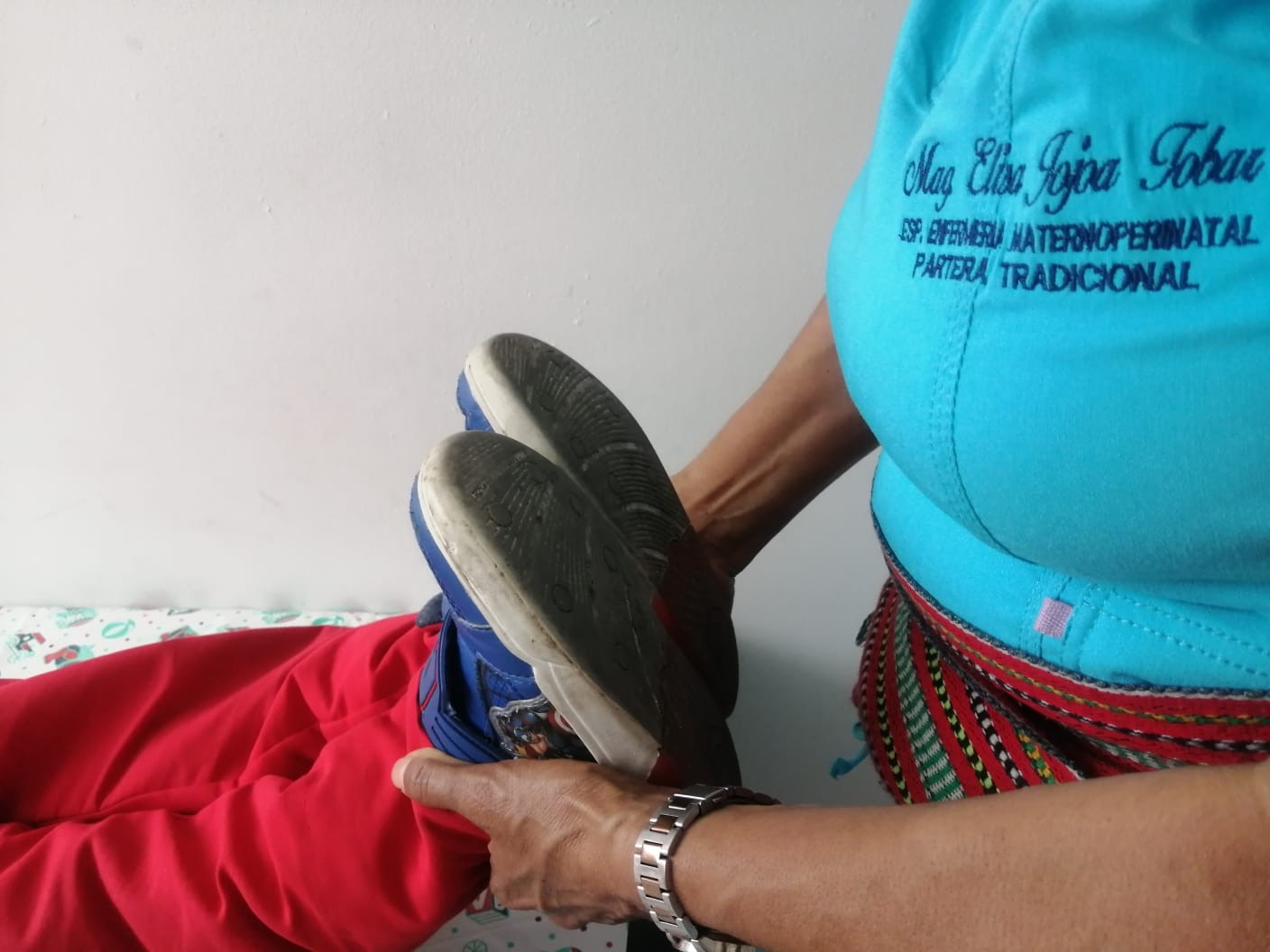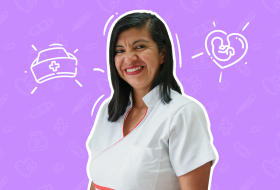News
This is the story of a Unicaucana professor advancing Primary Health Care with an ethnic and intercultural differential approach
Professor Elisa Jojoa, from the Nursing Program in the Faculty of Health Sciences, contributed to Chapter 11 of the book Experiences in Access and Care for Vulnerable Populations in Primary Health Care, alongside colleagues from the Minuto de Dios University Corporation. This valuable document addresses the experience of the Intercultural Nursing Clinic located at the University of Cauca's Health Center.
On September 2 of this year, at the Minuto de Dios University Corporation facilities in the Colombian capital, Professor Elisa Jojoa participated in the launch of the book Experiences in Access and Care for Vulnerable Populations in Primary Health Care. This process was driven in collaboration with professors Viviana Andrea Calderón Ramírez and Ángela Carmenza Gallego from Uniminuto. Together, they collaboratively developed Chapter 11, titled "Colombian Experience of Integrating Primary Health Care (PHC) with an Ethnic and Intercultural Differential Approach from Academia”
With excitement about the process undertaken, Professor Elisa stated, "In the first part of the chapter, we review the legal context of integrating the multidifferential approach in indigenous populations. In the second part, we analyze the training of healthcare professionals regarding the incorporation of this approach. In the final part, we share the practical experience of the entire intercultural health process in the Nursing Program, including both theoretical courses and the practice carried out at the Intercultural Health Clinic."
It is important to mention that the Intercultural Nursing Clinic is an initiative of the Nursing Program at our Alma Mater. This initiative aims to create an academic space where knowledge is interwoven between Western medicine and the traditional medicine of our indigenous peoples. This space is available to the entire community at the University of Cauca's Health Center, located in the Alfonso López neighborhood of Popayán. "In this place, students can experience firsthand the most common cultural illnesses in our environment, such as susto (fright), cold of the dead, or menstrual disorders, all treated from an intercultural approach.
Other practices, such as cierre de dieta (diet closure) or cierre de cadera (hip closure), which are performed 40 to 45 days after childbirth, can also be learned about," shared Professor Elisa, who is very proud to provide details about this important ongoing process.

Provided photo
With conceptual resources like this, derived from experience and committed work, students can understand how these pathologies are diagnosed in traditional medicine and learn about their treatments.
Additionally, they gain the ability to understand the physiological explanation of these pathologies and why traditional medicine treatments are effective. Furthermore, students have the opportunity to learn about the benefits of cultural care practices, while also recognizing that some, though few, may pose health risks. From this, there is reflection on how to address these situations with families and communities, to respectfully dismiss certain cultural care practices while integrating the best practices of traditional medicine.
"I want to thank my professor Elisa, who helped me heal. For over 11 years, every menstrual period was an experience of intense pain, headaches, dizziness, and weakness. All that time I thought it was normal until the professor treated me, and everything changed for me," expressed a student from the Nursing Program who accessed the service.
This testimony invites us to reflect on the positive impact of this initiative and encourages others to learn more about the Intercultural Nursing Clinic, which is available to anyone interested on Thursdays between 9:00 and 11:30 a.m. Those who wish to improve their health or know someone who might benefit from this space should not hesitate to visit. From this place of thought, we celebrate that initiatives intertwining various knowledge and wisdoms are developed in our classrooms, contributing to improving the quality of life and well-being of individuals.
Written by: Communications Management Center.


